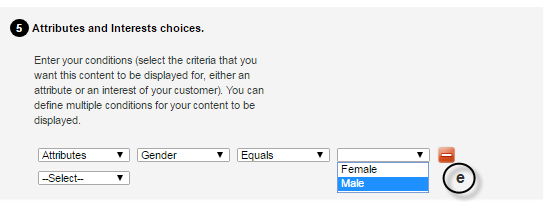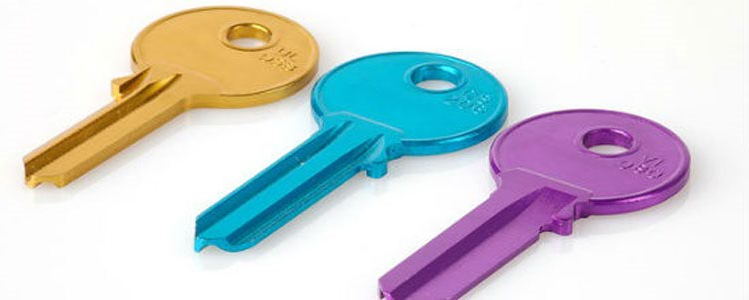...
The screen below appears.
1. Select Configure a default contentCreate Default Content.
The screen below appears.
2. Enter the Title of your default content. In our example: Title default content Support. This Test ZZZ. This title appears in the preview to the right of your screen. It also appears in the Tile (image) inserted in the email sent to your lead.
3. Enter the Description of your default content. In our example: Description of default content for PUBLITRAC Support Product Description. This description is displayed in the preview to the right of your screen. It also appears in the Tile (image) inserted in the email sent to your lead.
4. Insert the image of your default content. Click on the pictogram pictogram to the right of the Path to the image field to access the images saved under Content / Images and documents (a - select the file containing the image you want from the drop-down; b - click on the image of your choice; c - click Select to have the image integrated to the dynamic content). The selected image will be displayed in the preview to the right of your screen.
...
a. Select the file containing the image you want from the drop-down menu.
b. Click on the image of your choice
c. Click Select to have the image integrated to the dynamic content
...
5. Indicate an Alternative text to describe your image. In our example: Alternative text to describe the image. This text is used for the purpose of referencing (SEO) for search engines who cannot see the images. The alternative text allows search engines to get an idea of what is on the image.
...
By clicking Next in the previous step, you go back to the Create Dynamic content creation Content interface.
The screen below appears.
1. Select Create a new content.
The screen below appears.
...
2. Enter the Name of your content name. In our example: Product A for men
3. Enter the content title of your content. In our example: Discover our new product for men. This title appears in the preview to the right of your screen. It also appears in the Tile (image) inserted in the email sent to your lead.
4. Enter theDescription of your default content content description. In our example: More than a man's product. This description is displayed in the preview to the right of your screen. It also appears in the Tile (image) inserted in the email sent to your lead.
...
a. Select the file containing the image you want from the drop-down menu.
b. Click on the image of your choice
c. Click Select to have the image integrated to the dynamic content
6. Enter an alternative text to describe your image. In our example: razor car man. This text is used for the purpose of referencing (SEO) for search engines who cannot see the images. The alternative text allows search engines to get an idea of what is on the image.
...
Behaviors: an action performed by the lead
Interests: custom fields that you create to track specific interests of your leads. For example, you have would have created a custom field to identify leads who have demonstrated an interest in electric razors or those who have shown interest for blade shavers.
9. Click Next and go to step 4.
...
In our example, profile B will match with the women to who we will send a dynamic content offering a razor van for women.
By clicking Next in the previous step, you go back to the Create Dynamic content creation Content interface.
The screen below appears.
1. Select Create a new content.
...
...
The screen below appears.
...
2. Enter the Name of your content name. In our example: Product B for women.
3. Enter the Title of your content title. In our example: Discover our new product for women.
...
4. Enter the Description of your default content. In our example: Our best Shaver van for women. This description is displayed in the preview to the right of your screen. It also appears in the Tile (image) inserted in the email sent to your lead.
...
a. Select the file containing the image you want from the drop-down menu.
b. Click on the image of your choice
c. Click Select to have the image be included in the dynamic content.
6. Enter an alternative text to describe your image. In our example: razor van woman. This text is used for the purpose of referencing (SEO) for search engines who cannot see the images. The alternative text allows search engines to get an idea of what is on the image.
...
By clicking Next in the previous step, you go back to the Create Dynamic content creation Content interface.
The screen below appears.
1. Every content has a configuration menu . Click Click on the small black arrow and you will have a choice of actions: Edit or Preview.
2. Select Preview for each of your contents one after another and verify that the good image and good text is displayed in the preview box to the right.
In our example: Default content
Content for Product A (male)
Content for Product B (female)
3.Click on Next
The screen below appears.
...
4 4. Click on Save.
5 5. Your dynamic content is now created and can be used in your email transmissions. See Step 5. Implement dynamic content in an email email further down on this page.
...
The emails received will look as follows:
...
Default profile:
...
To follow
Product A (man):
Product B (femalewoman):
...
To follow
Edit a dynamic content
1. Navigate to contents -> dynamic Go to Content and click on Dynamic content
2. Select Product man. Product woman (we keep the same example).
...
Once the dynamic content has been created, it needs to be implemented in an email. Dynamic content cannot be applied to a landing page, it is unique to emails
1.Select contentContent, andthen in the submenu Email.
...
2. Select the email in which you want to integrate the dynamic content.
3. Place your cursor in the email, in the place where you want to integrate the Dynamic content.
4 .Click on Dynamic contentContent
5. Select the Content that you just created (or any other content that you want to insert).
...
The next window with the dynamic content code will be displayed:
6. Click Save.
TIPS
- Dynamic contentContent can be implemented on emails only. No dynamic content can be implemented on landing pages.
...




































